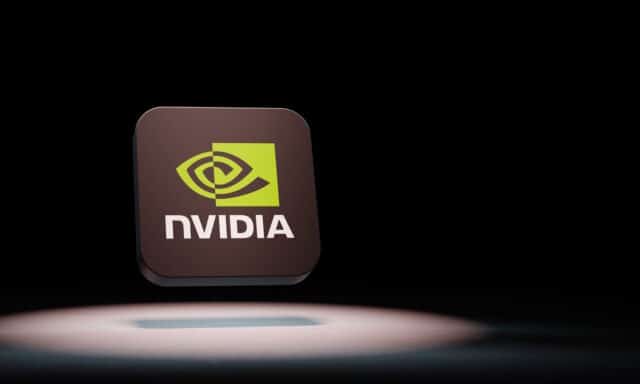How strong is Nvidia as an alternative investment?

Alternatives are an increasingly attractive investment opportunity. Why? An alternative investment offers an investor the opportunity to diversify their portfolio and mitigate risk.
A growing trend is investment in the technology sector, this is a good move and an opportunity I have spotted for myself. Technology is a global economic focus, countries, governments and organizations are racing to get up to speed and get ahead of technological innovation. Economic investment is a byproduct of the competition, so it is unwise not to see the investment opportunities here.
Graphic Processing Units (GPUs) investments are thriving, possibly due to Nvidia promising a hefty 700 percent return -- which is an ambitious promise to make. The GPU market is projected to grow to unimaginable heights, driven by the rise of Artificial Intelligence (AI), gaming and data centers.
Nvidia is widely regarded as the leading player in the GPU space and very briefly became the world's most valuable company with a market cap nearing $3.34 trillion -- experts predict that the broader market can reach beyond that by 2030 or even earlier than that with AI-driven applications fueling neverending demand.
GPUs are critical in AI infrastructure and competitors such as AMD, Intel, Qualcomm, AWS, Samsung and even Apple still can't overtake Nvidia’s dominance so their future looks promising.
It is important to state again, that with any investment comes risks, markets can be volatile regulations can cause challenges, CEOs can make big mistakes and that can cause irreparable damage to the company. Like everything, all very unpredictable -- but without risk then there is no gain (famous last words).
Risk is important to foresee when investing, due to the size of Nvidia their stocks will be under scrutiny and so will the organization and rightfully so it is important to keep an eye on companies of such size and keep them accountable to ensure they remain ethical in practice.
Where does Nvidia fit in investments?
There is no denying that Nvidia is a tech giant. Their latest financial results reported $30 billion in revenue, which is a 15 percent increase from the previous quarter and a 124 percent increase from the previous year. They’re completely dominating the market, particularly in the realms of AI and High-Performance Computing (HPC) and remain one of the most stable and innovative tech companies in the market despite any recent setbacks and challenges.
With over 20 years in the tech industry, founding companies like EKM and ATTCo and leading global programs at HP, I’ve observed how Nvidia has navigated tumultuous markets, consistently adapted to shifts within the industry and still maintained leadership in its space, it’s admirable.
Nvidia is a perfect investment avenue, it has high growth potential and is an increasingly popular choice for those looking to capitalize on tech-focused investment strategies.
What impact does market volatility have?
It is not all roses, recent headlines can understandably be a concern for a lot of investors but I believe in educated risks.
Although the stock dip has raised concerns, it is important to distinguish between short-term market factors and long-term strategic positioning. The demand for infrastructure is ten times higher than the supply with nearly a year-long lead on some of their products due to ongoing demand. The leadership Nvidia have established in AI and HPC is not easily replicable, their continuous investment in research, development and strategic acquisitions provides a strong position for future growth.
As an investor, my perspective is that the current dip could be seen as a buying opportunity. Historically, Nvidia stocks rebound as the demand remains persistent. The AI and HPC markets are on track to grow at an unimaginable pace and I am confident that Nvidia has positioned itself to capitalize on these trends.
There is a need to be mindful and always factor in potential risks when investing such as geopolitics, trade tensions and regulations and these can all impact an organization's global operations. Weigh up your options, evaluate potential risks and make an executive decision on if you can weather the storm of the worst possible outcome.
Where does Nvidia sit in the tech landscape?
There are immediate challenges that Nvidia are facing, but long term, Nvidia look strong. As mentioned GPUs are central to the developments of AI and HPC but also critical to emerging technologies such as edge computing, autonomous systems, and the metaverse. Bit of a curveball to the discussion but Nvidia’s CUDA platform alone has become the standard for GPU- accelerated computing which is another competitive edge, Elon Musk announced the use of 100,000 Nvidia AI chips (more than any single AI system on planet Earth) to create Colossus, which Musk claims is “the most powerful AI training system in the world”.
I predict that Nvidia’s strategic focus on AI, HPC and edge computing will drive its growth for years to come. The ability that they have to innovate, adapt to changing market conditions and their strong network of partners gives them a solid position to navigate challenges and opportunities within the tech landscape that is in a race to evolve.
Conclusion
Yes, Nvidia have huge challenges but its position as a leader in AI and HPC is secure. They can innovate, adapt and expand into new markets and that will continue success.
To my fellow investors, be aware of the stock dip but also see the trends, is this a time to cash in? Nvidia has strong fundamentals and strategic positioning - the tech industry is evolving and in my view, Nvidia is ahead.
Image credit: MRMake / Dreamstime.com

Colin Bosher is COO, Nuway Capital. He is a respected technology industry pioneer of hosted SaaS IoT and subscription enablement middleware -- having founded EKM in 2001 and ATTCo in 2016. Prior to establishing both companies, Colin was responsible for developing a series of global programs for HP from R&D centers, including leading B2B e-commerce, next generation managed assets and e-services. Colin has developed comprehensive enterprise class middleware technology platforms and programs to support highly repeatable and scalable digital transformation -- prior to selling the ATTCo Group, including EKM, to the Fortune 100 enterprise company TD SYNNEX in November 2021.
